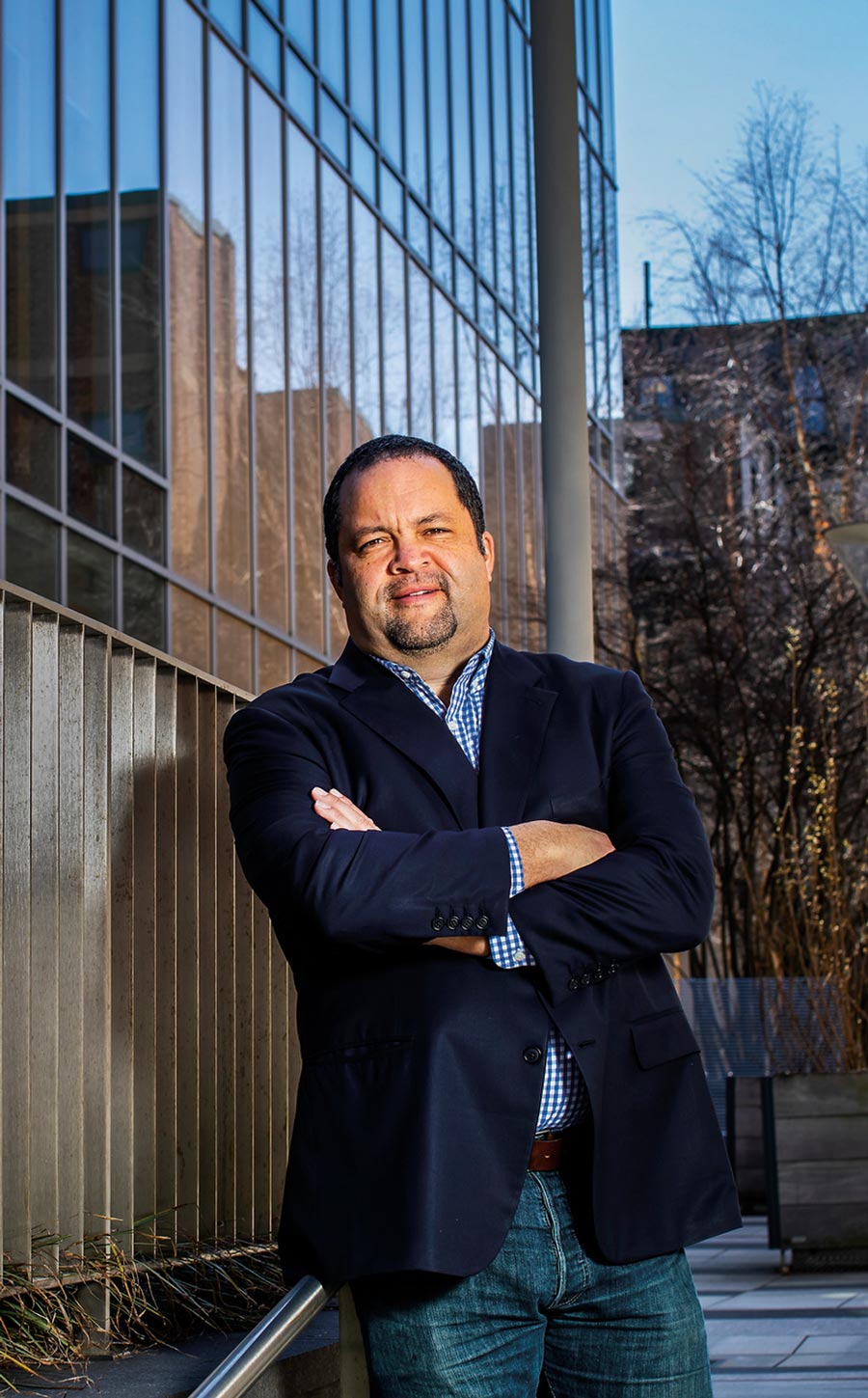

Former President of the NAACP Ben Jealous shared his life story during Public Interest Week.
“I walked out of the party at that point. The notion that it was an accomplishment for a member of any group, let alone my own group, to simply breathe past their 21st birthday cut me like a knife,” said Jealous, a 2021 Honorary Fellow in Residence at the University of Pennsylvania Carey Law School and President For The American Way.
That birthday party started Jealous, who in 2008 at age 35 was chosen as the youngest-ever president and CEO of the NAACP, on a lifetime of advocacy for the Black struggle for equality and freedom. He shared his story as a guest speaker during the Law School’s Annual Public Interest Week, organized by the Toll Public Interest Center, the hub of public service at the Law School. Soon after the party Jealous met with his family’s griot, his now 104-year-old grandmother, Mamie Todd SW’53, for counsel.
Why, he asked, after the promise of the Civil Rights movement, did his generation find themselves the most incarcerated people on the planet and the most murdered in the country.
She explained: “We got what we fought for but we lost what we had. We got the right to send our children to any school in town. We lost the right to assume that they would be loved or welcomed the way that I was welcomed at the one-room schoolhouse that [my] grandfather built for his children, and his grandchildren and those of other people who had been born into slavery.”
She added Black people gained the right to work in law enforcement but lost the right to live in safe communities.
On the bus back to Columbia, Jealous determined to make his cause ending the injustice in the justice system. That’s how he found himself in Mississippi at age 20 working as an organizer with Stacey Abrams and others.
(Abrams, former Georgia gubernatorial candidate, minority leader of the Georgia House of Representatives and activist against voter suppression, joined Jealous during the spring semester for a conversation sponsored by the Annenberg School for Communication, the Law School, the Stavros Niarchos Foundation Paideia Program, and the Penn Provost’s Office. See page 16.)
Abrams and Jealous fought the governor’s proposal to turn Mississippi Valley State University into a prison, to close down Alcorn State, and to make Jackson State University into a majority white college. The plan would basically have shut down higher education for Blacks in the state.
“Turning a college into a prison is the most fundamentally un-American, or even un-Mississippian thing that you could do,” Jealous said, adding those schools are still open.
Jealous also spoke about his efforts working with allies to end mass incarceration, which he said is one of the prices Black people have been forced to pay for freedom. When he was president of the NAACP, the death penalty was abolished in six states in five years. He helped Abrams push through what he called sweeping changes to the Georgia criminal code. In Texas, 52 progressive criminal justice reforms were passed.
“Texas prior to that point had only opened up new prisons or refurbished and reopened old prisons since the first prisons were built around the time of the Civil War,” he said. “Now it’s on track to shut down 12 prisons.”
One of his most successful campaigns, Jealous said, was ending the juvenile death penalty in the country.
With his own life as inspiration, Jealous ended his remarks with a charge for program participants, particularly the younger members of the audience. “Each of you has been put here for a reason. If you know what it is, please go after it with all your heart.”